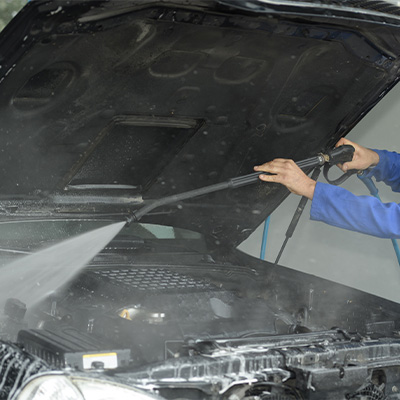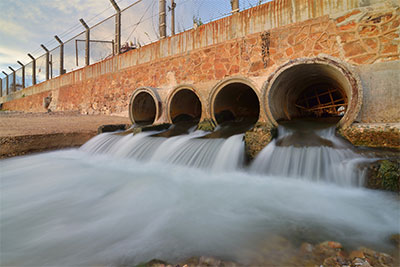Wastewater Legislation in Australia
Operational standards for businesses are regulated depending on the type of business and its location. Businesses that discharge wastewater to the sewerage network are subjected to legislation concerning the amounts and quality of discharged wastewater.
- Legislation concerning wastewater disposal is enforced by the relevant water authority.
- The legislation is complex and difficult to understand as different water authorities enforce different requirements.
As heavy wastewater producersthrough wash bays, commercial car wash businesses are subject to equally stringent wastewater disposal regulations. To learn more about how wash bays are used in specific industries, watch the video below.
Cleanawater is the industry leader in providing water authority compliant solutions to businesses. Cleanawater sells, hires, and services water authority compliant systems for all industries.
Compliance Requirements
Depending on the type of waste produced by a business, and the jurisdiction in which the business is located, a different set of car wash rules and regulations apply. For example, a car wash business in the Sydney Water jurisdiction may have different compliance requirements than one in the Barwon Water territory.
Water authorities enforce strict regulations for industrial businesses to protect municipal equipment and, more importantly, the environment.
Businesses that discharge wastewater to the sewer system, such as car washes, wash bays, mechanical workshops, service stations, and quarantine inspection sites, must comply with all applicable legislation.
Wash Bay Regulations for Other Vehicles
Commercial car wash facilities and other vehicle wash bays tend to have similar compliance rules and regulations. However, if you’re designing washing bays for any of these vehicles, it’s important to understand stormwater systems, wastewater management, and the high-pressure equipment needed to achieve efficient engineered performance.
Cleanawater can help you understand the car wash environmental regulations for the following:
- Bus wash bay
- Equipment and heavy machinery wash bay
- Caravan/RV wash bay
- Truck wash bay
For all vehicles, we also specialise in designing and implementing various wash bays for different industrial needs. This includes:
Talk to our team today about the ideal wash bay for your vehicle needs and the compliance regulations you’ll need to adhere to.

Why Compliance is Important

Without these regulations, businesses would be free to discharge highly dangerous substances to the sewerage system or the environment. Unlawful discharge to the sewer can potentially overload the sewerage network, making sewerage water treatment more extensive and costly.
Expensive municipal equipment could also be easily damaged, and treated water discharged to water bodies would be of lower quality. Businesses that fail to comply with applicable regulations are subjected to hefty fines and legal prosecution.
It is difficult for businesses to acquire and understand information regarding how to ensure compliance on their premises, and missing small details or misinterpreting information could easily lead to a business purchasing equipment that is incapable of complying with regulations.
Additionally, businesses must comply with current regulations and update their practices and equipment as regulations change. This would require businesses to regularly check legislation to ensure existing equipment complies with new legislation.
Cleanawater’s expert advice can facilitate wastewater compliance. With many years of experience in providing businesses with high-quality water compliance solutions, Cleanawater’s systems will give you peace of mind that your business is environmentally friendly and compliant with all regulations at all times.
Compliance Scenarios
Scenario 1
A new 24/7 car wash business located in the Sydney Water jurisdiction required an oil water separator. The customer approached Cleanawater seeking an economical solution capable of handling large volumes of water.
Solution
Cleanawater’s TS series 2000 L/h oil water separator with diaphragm pump and alarm system
Cleanawater’s engineers determined the business required an oil water separator capable of operating around the clock. As the car wash operates automatically, and without staff supervision, it was important that in the event of an error, a technician was notified promptly.
Cleanawater delivered a fully compliant oil water separator with a custom alarm system. This system exceeded Sydney’s Water discharge and equipment requirements and has provided the business with a solution that is operational and highly efficient.
|
Sydney Water Requirements |
Cleanawater’s TS series 2000 L/h separator (diaphragm pump) |
|
Single phase non-emulsifying pump |
✔ |
|
Equipment installed by licenced plumber |
✔ |
|
Installation and lids meet Australian Standards, Workplace Health and Safety standards |
✔ |
|
Maximum 10 mg/L hydrocarbons discharge |
✔ |
|
Removal of suspended solids |
✔ |
|
Appropriately sized oil water separator |
✔ |
|
Sludge drain and oil off-take to waste oil drum |
✔ |
Scenario 2
One of Australia’s largest transport and logistics businesses, located in the City of Swan in Western Australia, approached Cleanawater for a highly sophisticated pH correction system.
The business had several wash bays where trucks and other large fleet were washed daily, and chemicals used to clean vehicles’ engines resulted in a highly alkaline waste water. Additionally, the company was using slow-break detergents on their premises, which is not industry standard.
Solution
Cleanawater’s Inline pH correction system
It is a requirement of The City of Swan that all industrial wastewater discharged to sewerage has a pH level of between 5.5 and 8.5. As this is a flexible range, Cleanawater delivered an automated system capable of adjusting pH levels to comply with regulations.
The system was equipped with high-level alarms including SMS notification and remote monitoring. In addition to the pH correction system, Cleanawater replaced the existing detergents used at the wash down bay with fast-break truck detergent and degreasers.
|
City of Swan Requirements |
Cleanawater’s Inline pH correction system & Oil Water Separator |
|
Non-emulsifying pump |
✔ |
|
Equipment installed and serviced by licenced staff |
✔ |
|
pH within 5.5 to 8.5 range |
✔ |
|
Maximum 30 mg/L hydrocarbons discharge |
✔ |
|
Removal of suspended solids |
✔ |
|
Appropriately sized oil water separator |
✔ |
|
Quick break detergents and degreasers |
✔ |
|
Sludge drain and oil offtake to waste oil drum |
✔ |
|
Installation and lids meet Australian Standards |
✔ |
Cleanawater's Comprehensive Wastewater Solutions
As mentioned previously, relevant regulation varies from one water authority to another.
As the industry examples above demonstrate, similar premises can have vastly different discharge requirements, and using slightly different chemicals can lead to non-compliance. While one water authority requires a maximum of 30mg/L hydrocarbon discharge, another requires a maximum 10mg/L.
Cleanawater can provide solutions approved by every metropolitan and regional water authority across Australia. We can provide fast and accurate advice to businesses purchasing compliant systems.
In addition to Cleanawater’s high-quality systems, we provide servicing, maintenance, and consumable plans to help businesses with smooth operations.
For more information regarding wastewater compliance, contact Cleanawater on 1800 353 788.
Must Read
VapourGard: Your ultimate odour control solution
Control odours effectively and safely with CleanaWater's VapourGard system. Ideal for industries such as mining, landfill operations, recycling, and more, the VapourGard system uses lightweight partic ...
Read moreControl Odour with VapourGard
Control odours effectively and safely with CleanaWater's VapourGard system. Ideal for industries such as mining, landfill operations, recycling, and more, the VapourGard system uses lightweight partic ...
Read more